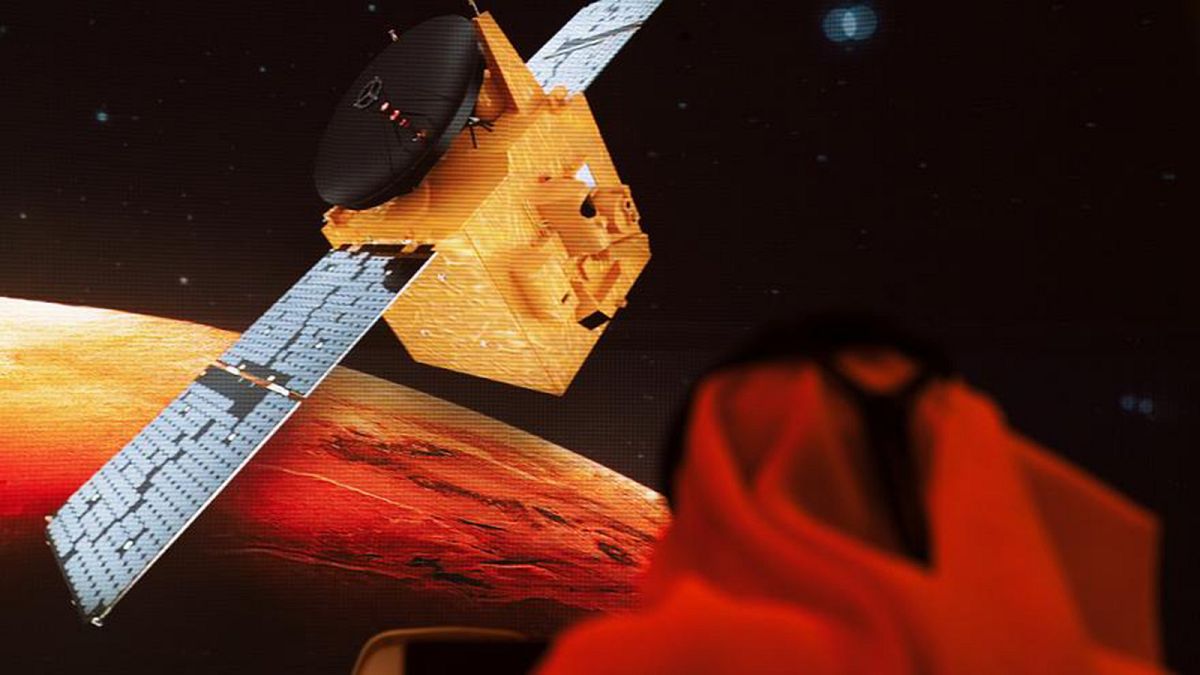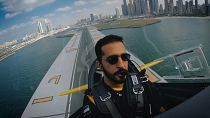After six years of hard work and meticulous planning from the team of scientists and engineers at the Mohammed Bin Rashid Space Centre in Dubai, the moment the United Arab Emirates has been striving towards finally arrived on 19 July; the Hope Probe launched-and set off on a seven-month journey to Mars.
The Emirates' Mars Mission is the first interplanetary mission to emerge from the Arab world; an historic - and nail-biting - moment for all those involved.
Ayesha Al Sharafi, Senior Engineer on the mission, said it was a rollercoaster of emotions:
"Excited and happy and grateful for this opportunity, (then) being very nervous and terrified. But above all, there's one emotion that takes over and that's hope."
After the launch, Dr Ahmad Belhoul al-Falasi, Chairman of UAE Space Agency, said they were delighted, but admitted that the team were doing their best to remain circumspect:
"We are trying to be (cautious), yet we cannot contain the happiness we have.
"It's been six years in the making, so we're still past the first stage of the launch, we're waiting for the second stage, which is the critical part."
The successful moment of the launch brought only short-lived relief as the team prepared for the next series of make-or-break moments, starting with the space craft’s separation from the rocket as it hurtled at 34,000 km per hour towards Mars.Fortunately, every mission objective on launch night ended up being successful.
Omran Sharaf, Project Manager for the Emirates Mars Mission, says there were a succession of crucial moments:
"We had the launch taking place and the separation of the spacecraft from the launch vehicle. That took place about one hour after launch. And just right after that by about 20 minutes, we managed to receive the first signal from the spacecraft."
Though-locally led, the Omran Sharaf says the Emirates Mars Mission wouldn’t have been possible without a commitment to international collaboration:
"Instead of building all the facilities from A to Z, we utilised and rented facilities that are available around the world. Instead of building our own deep space network, we are utilising NASA's deep space network. We connected it to our operations room in Dubai.
"We bought services from MHI, a Japanese company that launches spacecraft. So it's very international. And the reason why we succeeded is because of the international collaboration."
But this was a mission with its fair share of challenges. Mohsen Al Awadhi, the Mission's Senior Systems Engineer says that, among the many issues that they had to consider the potential impact of, was the current coronavirus pandemic:
"We anticipate and think about things that we might face when it comes to risk and when it has to do with scheduling and so on. Covid19, was not (originally) one of them, for sure!
"Starting with (having) to ship this spacecraft earlier to Japan, about a month earlier than the scheduled date, that on its own was a big challenge that the team was able to overcome."
Ultimately, the aim of the mission is to collect data that will be shared freely with everyone. And for these scientists that’s the most exciting part of all, as Sarah Al Amiri, Minister for Advanced Sciences and Deputy Project Manager of the Emirates Mars Mission, acknowledges:
"Science isn't something that's owned by any one nation. And that's the beauty of it. It's something that benefits all of us.
"Now, the fun part starts with science, starting to collect scientific data, verifying and validating the data processing that we've done on them so that we can release our data sets to the public and to scientists around the world to work on and utilise in their research areas.
"And this also instigates the research of the science team to kick off and start. And we truly hope that we do find a scientific discovery by the end of 2021 with the data that's gathered in that year."
The Hope probe is expected to reach Mars by February 2021, when the UAE will be celebrating 50 years since its formation.
Whatever discoveries Mars may have in store for them, this mission has already given the team at the Space Centre immense practical knowledge and the hope that reaching the red planet is within their grasp.
The Hope Probe will study the upper atmosphere of Mars as well as monitor climate change on the Red Planet over a period of two years.
The UAE is optimistic that it will provide a complete view of the Martian atmosphere during different seasons.
It's a huge moment for the UAE, not just scientifically but in terms of morale, as Omran Sharaf concludes:
"This is a message of hope to the Arab youth. If a young nation like UAE is able to reach Mars in less than 50 years, then we can do much more as a region.”






